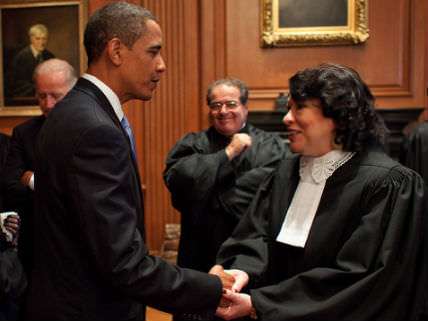Sotomayor Is Right: SCOTUS Gave Too Much Leeway to the Police in Heien v. North Carolina

Last week the U.S. Supreme Court ruled 8-1 in favor of the police in a Fourth Amendment case in which the arresting officer's "mistake of law" led him to conduct an erroneous traffic stop (and subsequent car search) based on a non-existent legal offense. Put simply, the officer in Heien v. North Carolina stopped a car for driving with a single busted brake light when it is not actually illegal to drive in that state with a single busted brake light. According to the Supreme Court, however, "because the officer's mistake about the brake-light law was reasonable, the stop in this case was lawful under the Fourth Amendment."
In his majority opinion, Chief Justice John Roberts compared his pro-police ruling to a hypothetical case in which an officer stops "a motorist for traveling alone in a high-occupancy vehicle lane, only to discover upon approaching the car that two children are slumped over asleep in the back seat." According to Roberts, in that scenario, "the driver has not violated the law, but neither has the officer violated the Fourth Amendment." Roberts applied a similar line of reasoning to reach his conclusion in Heien.
But those two scenarios should not be treated equally. In the first one, the officer is mistaken about the facts, not about the law. Because it is actually a crime to drive alone in a high-occupancy vehicle lane, the officer's only error was in thinking that a legitimate violation of a verifiable statute had occurred. It therefore makes a certain amount of sense for the courts to view that mistake as a "reasonable" one.
But something very different occurred in Heien. Here, as Justice Sonia Sotomayor noted in her lone dissent, "police stopped Heien on suspicion of committing an offense that never actually existed." This was not a reasonable mistake about the facts on the ground—it was a mistake of law made by the police, the very same government officials whose central duty is the proper enforcement of the law.
"One is left to wonder," Sotomayor wrote in dissent, "why an innocent citizen should be made to shoulder the burden" of such encounters with law enforcement. Sotomayor was right to wonder. If ignorance of the law is no defense for the citizenry, why should ignorance of the law now get to serve as a shield for the police?


Show Comments (47)